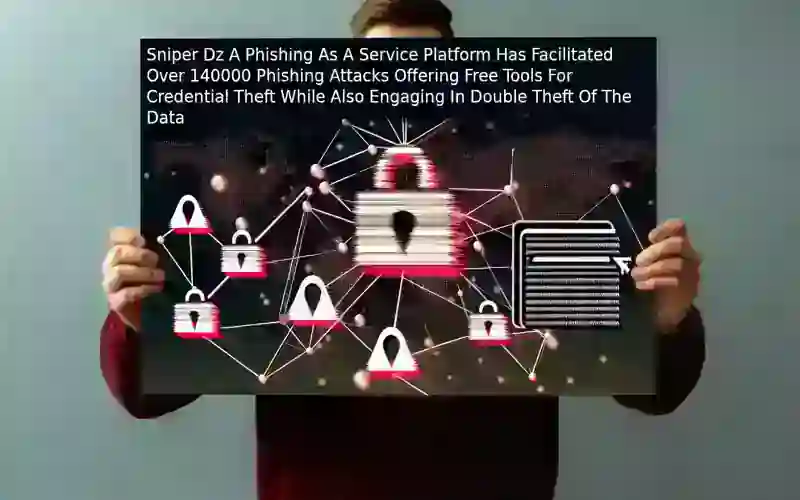
“Sniper Dz: Double Theft, Double Trouble – Free Phishing with a Hidden Cost”
The Double Theft Model of Sniper Dz: How Free Phishing Services Profit from Cybercrime
The Double Theft Model of Sniper Dz: How Free Phishing Services Profit from Cybercrime
In the shadowy corners of the internet, a particularly sinister model of cybercrime is flourishing, one that not only victimizes the unsuspecting but also enriches its orchestrators. Sniper Dz, a Phishing-as-a-Service (PhaaS) platform, epitomizes this troubling trend with its so-called “free” service. This service, however, is not without its costs. It operates on a double theft model where all credentials harvested by users are secretly exfiltrated to Sniper Dz’s operators, a tactic that Microsoft has chillingly labeled as “double theft.” This model not only fuels cybercriminal activities but also ensures that the platform’s operators profit from every attack carried out using their tools.
The accessibility of such platforms is particularly alarming. They empower individuals with minimal technical know-how to launch extensive phishing campaigns, democratizing the tools of cyber deception. Marketed aggressively on platforms like Telegram, where Sniper Dz boasts over 7,170 subscribers, these kits are disturbingly easy to obtain. The recent activation of an auto-delete feature on their Telegram channel, which erases posts after just one month, hints at a calculated attempt to blur their trail following increased scrutiny from cybersecurity experts.
Unlike many operations of its kind, Sniper Dz does not lurk in the anonymity of the dark web but parades itself on the clearnet. It brazenly invites users on its homepage with promises of “scams and hack tools.” A promotional video on Vimeo, flaunting a variety of ready-to-use scam templates for platforms like Facebook, Instagram, and PayPal, has garnered over 67,000 views. This staggering number not only reflects vast interest but also suggests a broad utilization of these deceptive tools.
Adding to the complexity are YouTube tutorials that walk viewers through setting up phishing sites using Sniper Dz’s templates. These videos show how to craft convincing fake landing pages for popular games like PUBG and Free Fire using legitimate services like Google Blogger. It’s unclear whether these tutorials have the official blessing of Sniper Dz or if they are the independent efforts of users exploiting the platform.
Sniper Dz doesn’t just offer simple phishing kits; it provides sophisticated features designed to enhance the stealth and efficacy of phishing attacks. For instance, it employs legitimate proxy servers to disguise the true source of the phishing content. This clever ruse fools both potential victims and security systems into thinking the proxy server is the origin of the malicious content, thus shielding Sniper Dz’s backend servers from detection and takedown.
For those who prefer not to use Sniper Dz’s hosting services, there is an option to download phishing page templates as HTML files for self-hosting. The platform also supplies tools to adapt these templates for use on platforms like Blogger, further widening the net for deploying these fraudulent pages.
The implications of such platforms are profound. According to Unit 42, there has been a spike in phishing activities targeting U.S. web users since July 2024, facilitated by Sniper Dz. The centralized infrastructure of this PhaaS platform not only simplifies credential theft for individual phishers but also aggregates stolen data across its user base, magnifying the potential harm from its operations.
This case study on Sniper Dz highlights a worrying evolution in cybercrime: the commoditization of phishing tools that enable even novice users to engage in damaging activities with severe consequences for internet safety and privacy. As these services continue to evolve and expand their reach, the challenge for cybersecurity professionals grows ever more daunting, necessitating vigilant monitoring and innovative countermeasures to shield unsuspecting users from these insidious attacks.














